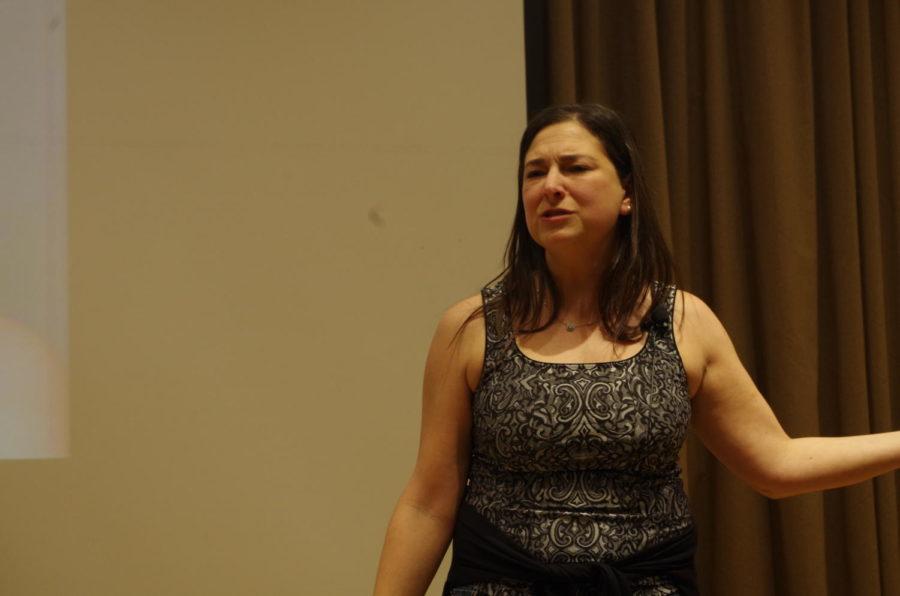Stop bullying your body
Setnick is the author of “The Eating Disorders Clinical Pocket Guide” and trans professionals around the country through Eating Disorders Boot Camp and her own private practice, Understanding Nutrition.
March 1, 2018
Jessica Setnick said that everyone only has one body to live in.
Reaching out for help is crucial, as it shows true investment in the progress of one’s esteem. Finally, as rudimentary as it sounds, surrounding oneself with friends who are light in heart makes a dramatic difference.
Setnick, a dietitian, author and eating disorder counselor visited Iowa State on Wednesday, Feb. 28 to offer insight on how to overcome harmful body image.
“Bullying your body is easy to do,” she notes, “but it’s not easy to stop.”
In her traveling lecture series, “Stop Bullying Your Body,” Setnick breaks down the complexities behind human’s negative relationship with food.
Setnick’s passion for body positivity originated during her time at the University of Pennsylvania, where she obtained her bachelor’s in anthropology.
“From an anthropological standpoint, humans don’t just do dumb things,” she said. “So why do exceptionally smart people do really dumb things with food and our bodies?”
With the answer being far from simple, she reminded the audience that such disorders are multifaceted. For starters, the body changes faster than the mind. Even though people change physically every day, modifying one’s mental perception doesn’t happen overnight.
In fact, most cases of body dysmorphia initiate during puberty, as the body’s growth is on a much faster pace than the brain can process.
In addition, Setnick noted that illnesses such as Obsessive Compulsive Disorder (OCD), anxiety and stress are all chemical conditions that can be disruptive to positive body image.
When someone’s having a bad day or they’re stressed about an exam, that negativity infiltrates their self-esteem. The more clutter on the brain, the harder it is to view ourselves in unadulterated light.
“Body image encompasses how you’re feeling when you look at yourself in the mirror that day,” Setnick said. “We have never truly seen our body the way someone else has seen our body, because we cannot see into their minds.”
Overcoming a body-image disorder is challenging, and it takes a lot of practice. Setnick first suggests surrounding oneself with people who are uplifting.
“Life is like a rollercoaster, and we need to stick together,” she said. “Find someone or something who believes in you.”







